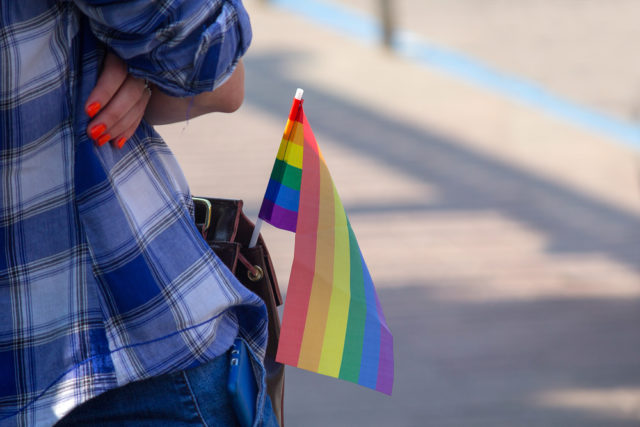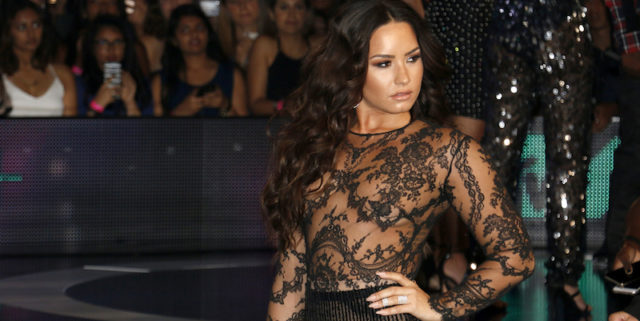
Coming out is often the first aspect of queer identity that many people struggle to find their stride in. The pressure to come out before you’re ready is paramount; straight culture is enamored with the idea of queer people and the ways that we live our lives that coming out often becomes a spectacle for them. And for many of us, the act of coming out isn’t what scares us—it’s the questions and invasiveness that follow. For some people, coming out is only the tip of the iceberg.
Once you’re “out of the closet” (whatever that means, exactly, because are we ever fully out?) part of your identity no longer belongs just to you. Your identity as a queer person, no matter where you fall on the spectrum, is now part of something bigger—the community at large, and even further.
Just last month I wrote about if the idea of coming out is even necessary, in 2017 and beyond. Traditional coming out narratives haven’t been updated to include some of the more nuanced takes of what it means to be queer today. There’s much more attention being paid to the ways that queerness informs or impacts other aspects of our lives—gender, race, ability status, class, and everything in between—that it’s not enough to center coming out as the apex of the queer experience. There’s so much more left to explore.
But as much as we talk about coming out, what happens after that? How does the culture that surrounds coming out—this obsession that we have with the timing of other people’s timelines and when they’re comfortable publicly declaring who they are—impact the ways that we determine what it means to even be queer or LGBTQ+?
We often look to those who are in the public eye to shed light on how to follow. Many celebrities that are in the public eye often reinforce the same expectations that fall on all queer folks: coming out becomes about other people rather than about us. Demi Lovato recently made a public statement that she’s not willing to come out unless “it’s going to be on her own terms“—which is admirable, but also shows just how much of coming out isn’t about us at all.

Celebrities and other individuals that exist in the public eye are also bringing up the issue of privacy surrounding coming out. How much do we share with the world, and how much of ourselves are we allowed to keep away from the public eye? That’s a question that anyone who has had to balance public and private personas (aka all of us) have had to navigate.
Unfortunately, there’s no straightforward answer to whether or not it’s better to be more public or private about our identities when it comes to coming out, or life following. For queer people, we know that coming out is a continuous process. For every new person we meet, there’s a new opportunity to either come out or not depending on various factors like safety, identity, power dynamics, or comfort levels. The weight of that can hang heavily on us and can take away from the agency and autonomy that our identities give us.
As more people become comfortable with sharing their truths publicly at various ages, we’re beginning to see a shift in how coming out occurs. Social media has created different rules as well—some people simply “come out” through announcement posts and cease conversations following. For many of the people who are coming of age and discovering themselves right now, the idea of coming out isn’t as intimidating so much as the ways that coming out will limit their identities after that. By having their identities become trivialized with them being bombarded with insensitive questions and hypothetical strawman arguments diminish the importance that their queerness has for them. It takes away the idea that identity belongs, first and foremost, for us to define.
So where do we go from here? For everyone, this may mean that we have more work to do surrounding exactly how we view coming out and the importance that we place on it with our identities. Right now, coming out is so intricately linked to queer identity that it can be hard to view queerness as something separate from it.
But it’s worth repeating: coming out is not something that can be done in every situation, by every queer person. No matter what the reason, coming out is a highly personal decision and shouldn’t determine exactly how “queer” someone is.
There is no one-size-fits-all queer experience, so why are we still pushing the idea that coming out needs to fit one particular mold? We’re all entitled to define our sexuality and identities as members of the LGBTQ+ community, firstly, for ourselves. Coming out may play a role in that experience, but in the larger aspect of the community, it isn’t the most important thing.
We are so much more than how or when we choose to come out.

What Do You Think?